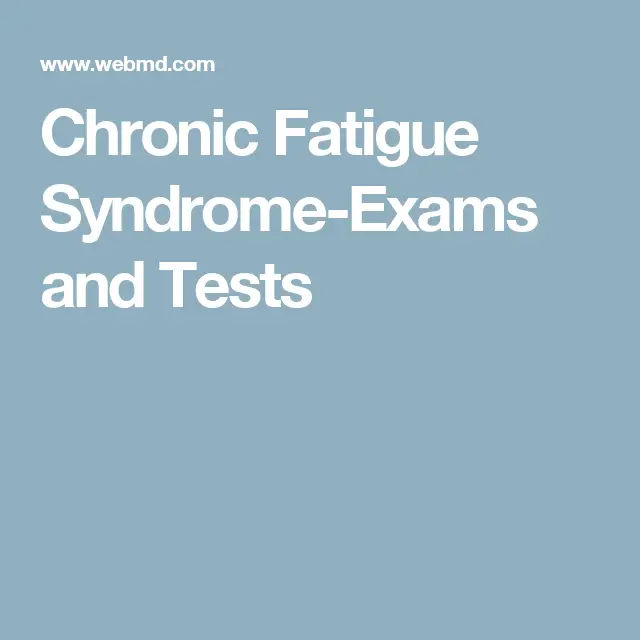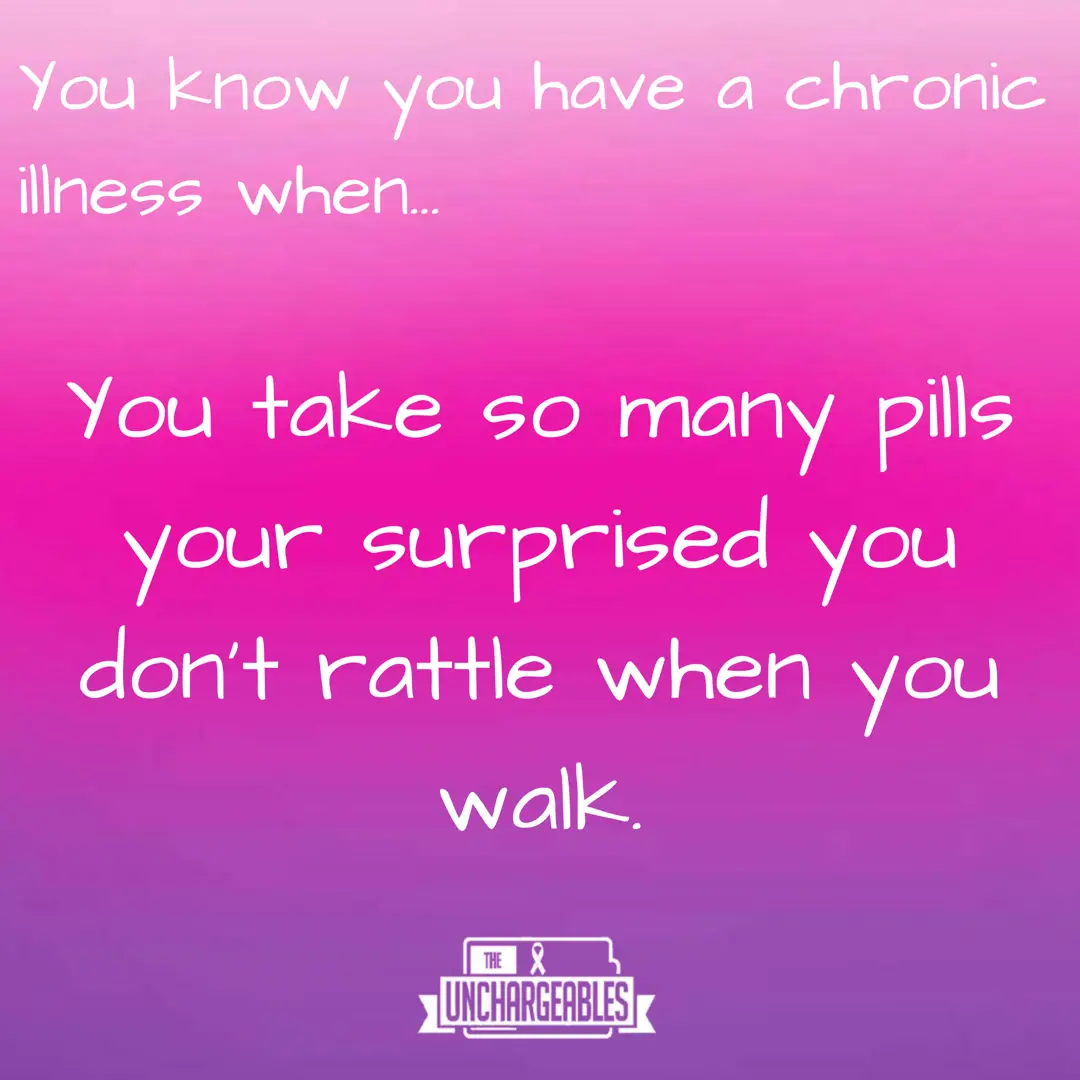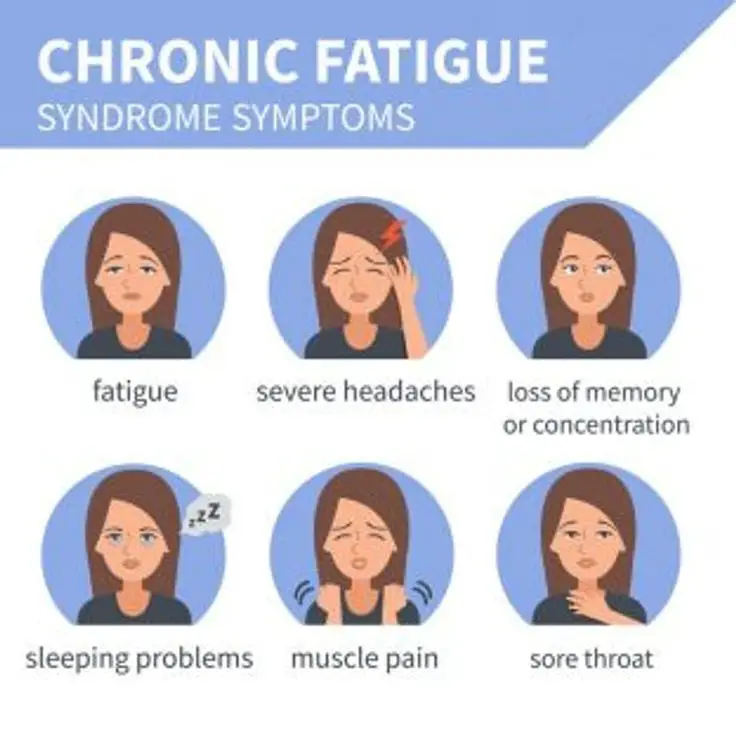S To Overcoming Chronic Fatigue Syndrome Naturally
Getting well requires undoing the things that contributed to your misery in the first place. Once you minimize or eliminate the root causes , amazing things happen. Cells are reenergized. Normal communication pathways become re-established. Immune system functions rebound. Adrenal and thyroid functions normalize. Nerves and neurotransmitters calm, and the brain starts functioning again.
Healing can take place, and symptoms, including fatigue, gradually resolve.
But to get well, you must want to be well more deeply than anything you have ever wanted. Ultimately, becoming well is your responsibility, and you alone must put the effort forward to make your recovery happen. This doesnt exclude having positive relationships with healthcare providers, family, and friends, which are all much to your benefit. But when you leave behind a total dependence on others to rescue you from misery, and take a stand to regain wellness that is rightfully yours to enjoy, you become a new person with a renewed purpose in life. That renewed purpose will carry you back to wellness and beyond.
Even with renewed spirit, however, youll need a plan to follow. The following guidelines provide the basic outline for the strategy I used personally to recover wellness, and that Ive since shared to successfully help thousands of others. You can follow in their footsteps.
What Is Myalgic Encephalomyelitis/chronic Fatigue Syndrome
Myalgic encephalomyelitis/chronic fatigue syndrome is a complex and disabling disease. It has been classified as a neurological disorder by the World Health Organization, though it affects many parts of the body, including the brain and muscles, digestive, immune and cardiac systems.
The term myalgic encephalomyelitis means pain in the muscles, and inflammation in the brain and spinal cord. Scientists are starting to understand some of the biological changes in the bodies of people with ME/CFS, although they have not yet found how to prevent, or cure it.
Research has found that ME/CFS is associated with problems involving:
- The bodys ability to produce energy at a cellular level
- Immune, neurological and hormonal systems
- Blood pressure and heart rate regulation
- Cognition how quickly information is processed
ME/CFS affects men, women and children of all ages, ethnicities, and socioeconomic backgrounds. 75-80% of people with the disease are female. It is estimated that up to 600,000 Victorians may be living with ME/CFS, and as many as 90% are undiagnosed.
How Is Myalgic Encephalomyelitis/chronic Fatigue Syndrome Diagnosed
Your doctor diagnoses ME/CFS by performing a mental and physical examination. Doctors will ask about your medical history and order blood and urine tests to check for infection. In many cases, doctors refer people with suspected ME/CFS to other specialists to rule out other illnesses that could be causing symptoms.
For your doctor to diagnose ME/CFS, you must have these 3 symptoms:
- Severe fatigue lasting at least 6 months that does not improve with rest or sleep
- Difficulty sleeping
- Fatigue that gets worse after mental or physical exercise
Additionally, you must have at least 1 of the following symptoms:
- Orthostatic intolerance
Recommended Reading: Extreme Fatigue And Back Pain
Chronic Fatigue Syndrome And Similar Disorders
Chronic fatigue syndrome encompasses a wide range of symptoms that affect most systems in the body, so doctors may easily confuse it for another disorder. Examples of the many conditions that may cause similar symptoms include anemia, hypothyroidism, hyperthyroidism, diabetes, cancer, celiac disease, obstructive sleep apnea, and inflammatory bowel disease.
Chronic fatigue syndrome may look especially similar to hypersomnia, narcolepsy, fibromyalgia, depression, and obstructive sleep apnea.
The Nuclear Option: The Me/cfs And Fm Symptom Thread

That didnt work? Pray for them, they need help. Promise them that the agony is almost over, and then go to the nuclear option: the symptom description thread . This option is not recommended for children, the fragile or people prone to depression. They may never look at you the same again but they will get a good sense of what ME/CFS and/or FM can be like.
Don’t Miss: How To Be Diagnosed With Chronic Fatigue Syndrome
Treatment Of Chronic Fatigue Syndrome
-
Cognitive-behavioral therapy
-
Graded exercise
-
Drugs for depression, sleep, or pain if indicated
In most cases, symptoms of chronic fatigue syndrome lessen over time. However, it often takes years for symptoms to subside, and not all symptoms disappear. People may recover more fully if they focus more on what function they can recover than on how much function they have lost.
Specific symptoms such as pain, depression, and poor sleep are treated. Cognitive behavioral therapy and gradual graded exercise, which have helped some people, may be worth trying.
Take This Quiz To See If You Might Have Cfs Or Fibromyalgia
Wonder if you have CFS or fibromyalgia? If you have had severe fatigue or widespread pain lasting over three months without an obvious cause, and if you also have insomnia, then you might have chronic fatigue syndrome and/or fibromyalgia. The checklist below can help you assess the possibility of this. If your score indicates you might, then you should consult a physician to find out for sure.
The Checklist uses two sets of criteria to evaluate your posibility of having CFS or fibromyalgia. Questions 1-5 are based on criteria established by the CDC for evaluating a persons possibility of having CFS. Questions 6-10 are based on criteria established by the ACR for evaluating a persons possibility of having fibromyalgia.
Also Check: L Oreal Paris Magic Skin Beautifier Bb Cream Anti Fatigue
You May Like: Hypersomnia Vs Chronic Fatigue Syndrome
How Is Myalgic Encephalomyelitis/chronic Fatigue Syndrome Treated
There is no cure for ME/CFS. Treatment goals include managing symptoms and returning you to a higher quality of life. Some people arenât able to regain the level of health and function they had before their diagnosis.
First, your doctor works with you to determine which symptoms cause the most difficulty. Together, you will address those symptoms immediately.
Counseling is helpful for many people with ME/CFS. This type of treatment helps people better tolerate symptoms by changing thoughts and behaviors. Your doctor may prescribe medications, like antidepressants or sleep aids, if your symptoms are especially severe. These medications can relieve symptoms like unrestful sleep for some people living with ME/CFS.
Before prescribing sleep aids, however, your doctor may provide suggestions for improving sleep without drugs. For instance, he or she might suggest that you visit a sleep specialist. Other tips include:
- Develop a regular bedtime routineâgo to bed and wake up at the same time each day.
- Do not nap for more than 30 minutes total during the day.
- Use your bed and bedroom only for sleeping and sex. Take out all electronics.
- Avoid eating large meals before you go to bed also avoid alcohol and caffeine.
- Do your exercising at least 4 hours before you go to sleep.
Talking With Your Healthcare Provider About Your Symptoms
Since chronic fatigue syndrome can be difficult to diagnose, it is helpful to come prepared to your doctors appointment. Think back to when your symptoms first started, and whether they may be linked to a stressful event or an illness. Make a note of all the symptoms you have experienced, even if they do not seem directly related to chronic fatigue syndrome. This can help your doctor rule out other conditions.
You may also want to prepare a list of questions to ask your doctor. Treatment for chronic fatigue syndrome tends to focus on managing symptoms through medication, therapy, and lifestyle changes. Tell your doctor about your preferences regarding activity levels, so they can help establish a treatment plan that works for you. They may need to refer you to specialists for more targeted treatment of certain symptoms.
- Was this article helpful?
CFS is a very challenging condition to diagnose.
According to the Institute of Medicine, as of 2015, CFS occurs in about 836,000 to 2.5 million Americans. Its estimated, however, that 84 to 91 percent have yet to receive a diagnosis.
There are no medical tests to screen for CFS. Its symptoms are similar to many other conditions. Many people with CFS dont look sick, so doctors may not recognize that they indeed have a health condition.
In order to receive a CFS diagnosis, your doctor will rule out other potential causes and review your medical history with you.
- sleep disorders
You May Like: Sickle Cell Trait And Fatigue
What Questions Should I Ask My Doctor
- Take along a list of all the symptoms you are experiencing in case you forget some of them during your talk with the doctor or nurse.
- Talk about how much you can do at work or school and around the house.
- Ask if there are any financial supports or services you could apply for.
- Ask for help with pain, sleep and remaining active if these are problems for you.
- Ask about what you should be eating.
Dont Miss: Body Aches Joint Pain And Fatigue
Deterrence And Patient Education
Living with chronic fatigue syndrome can be stressful, as the symptoms can affect the quality of life. Most people are generally healthy and active before developing CFS, making it particularly distressing. The most crucial factor for patients to successfully cope with CFS is establishing a strong relationship with an experienced health care provider. Having a provider that patients can trust, who listens to them and understands that their symptoms are real, can be validating and helpful. While it is discouraging to know that there is no quick cure for CFS, an experienced provider can work with the patient to find ways to manage their symptoms and maximize their quality of life.
Also Check: Vitamins To Help Fight Fatigue
How Do You Know If Youre Just Tired Or If You Have Chronic Fatigue Syndrome
Myalgic Encephalomyelitis is the medical term for chronic fatigue syndrome, a condition that affects 2.5 million Americans, according to an estimate from the CDC. It can affect people of any age, including children and teens, but is most common in women in their 40s and 50s. In fact, women and girls are four times more likely to be diagnosed than men and boys.
Chronic fatigue is much more than feeling tired all the time, and it comes with other symptoms. Cases can be mild to severe, with 1 in 4 people with chronic fatigue experiencing severe symptoms. Those symptoms can include:
-
Fatigue that has lasted 6 months or more
-
Tiredness that affects your daily activities at work and home
-
Feeling more tired than usual after physical exertion
-
Interrupted sleep trouble falling and staying asleep
-
Feeling tired even after a solid rest
-
Trouble concentrating
-
Unexplained muscle or joint pain
-
Feeling lightheaded or having blurry vision or rapid heartbeat when standing or sitting upright
-
Needing to take a nap to get through the day
-
Social isolation and depression
Experts aren’t sure exactly what causes chronic fatigue syndrome, but there are theories that it could be connected to genes, other conditions , immune system problems, blood pressure and circulation issues, or hormonal issues.
How Is Chronic Fatigue Syndrome Treated

Treatment is determined by your healthcare provider and based on:
- Your overall health and medical history
- Extent of the condition
- Your tolerance for specific medicines, procedures, or therapies
- Expectations for the course of the condition
- Your opinion or preference
- Medicine, including corticosteroids, antidepressants, and others
- Light-intensity aerobic exercise
- Dietary supplements and herbal preparations
- Psychotherapy and supportive counseling
Recommended Reading: Extreme Fatigue And Aching Joints
Where Can I Get Support
ME/CFS can have a significant emotional and financial impact on your life. A lack of understanding and awareness about ME/CFS means patients can experience disbelief, and even discrimination, from friends, family, health and social care professionals and employers.
Information on entitlements to welfare benefits, accessing health and social care and others sources of support for patients and carers are available from Action for M.E. They also offer resources and services for children and young people affected by ME/CFS and their families.
What Is Chronic Fatigue Syndrome /myalgic Encephalomyelitis
Chronic fatigue syndrome , also known as myalgic encephalomyelitis , is a chronic , complex and disabling illness that causes extreme fatigue and other symptoms that cannot be explained by any other medical condition.
If you have ME/CFS, you are likely to feel very tired, very often, even if you have not been active. You may also have a host of other symptoms.
Doctors do not yet understand the cause of ME/CFS, and there is no simple cure. If you or your child has ME/CFS, your doctor can suggest treatments you may find helpful.
Recommended Reading: How To Combat Period Fatigue
The Multiple Sclerosis / Chronic Fatigue Syndrome Study
Theyre mumbling that HIV/AIDS is quite treatable? I think they would agree that multiple sclerosis is not. Wouldnt they, like anyone, quail at the idea of having MS?
Hit them with a study showing that multiple sclerosis patients were twice as functional, experienced considerably less pain and had greatly increased vitality compared to people with ME/CFS All this in a disease known for the high rates of fatigue it produces.
Recommended Reading: Diseases That Cause Extreme Fatigue
How Does Me/cfs Affect People
ME/CFS affects different people in different ways, some more severely than others. There are four levels of severity of ME/CFS, which give an indication of the level of disability ME/CFS can create:
- mild: 50% reduction in pre-illness activity
- moderate: mostly housebound
- severe: mostly bedridden
- very severe: totally bedridden and need help with basic activities including nutrition and hydration.
The severity of ME/CFS can vary over time. A person living with ME/CFS could be at one level of severity now, then their disease could either improve or deteriorate over time. For some patients, their disease can worsen significantly with no known cause. Other patients have a fluctuating illness where they have better and worse periods, which last for months or years. It is unclear why this happens.
For most people, ME/CFS is a lifelong disease. Full recovery is rare and estimated at less than 10%. For some people with ME/CFS, as time passes and their disease improves, they will find they can do more, but it is a slow and gradual process. However, this is not the case for everyone. Some people find their disease worsens over time, others may remain somewhat stable. With support and pacing, people can often improve their quality of life.
Recommended Reading: What Vitamins Will Help With Fatigue
Prevalence And Clinical Features
It is difficult to establish the prevalence of CFS, since it depends on the diagnostic criteria used and the study population. Initial research suggested a prevalence between 0.002% and 0.04%. . However, latest epidemiological studies in the USA and in the United Kingdom show prevalence rates ranging from 0.007% to 2.5% of the general population. These rates increase up to 0.5-2.5% when the population assessed includes individuals seen in primary care facilities instead of the global population. In the United Kingdom, according the Oxford criteria , the prevalence in the global population has been estimated in 0.6%. In Japan the prevalence has been found to be 1.5% in the general population. Thus, the prevalence in the general population appears to be much higher than previously indicated. Even with strict criteria for CFS, it is estimated that approximately 1% of the adult population experiences this condition. Interestingly, a large part of this group remains unrecognized by the general practitioner. A striking similarity in lifestyle pattern between SF, CF and CFS calls for further research.
CFS mainly affects young adults from 20 to 40 years, although the symptoms also exist in childhood, adolescence and in the elderly . It has a 2-3 times higher prevalence in women than in men. No evidence exists showing that any socio-economic group is more affected than others .
Will I Still Be Able To Work With Me/cfs
Research shows that about half of people with ME/CFS work part-time or full-time jobs. For some people with ME/CFS, the ability to work is possible thanks to a supportive employer and certain workplace accommodations, including a flexible schedule, a quiet comfortable place to rest, and memory aids.
But, if you can’t work because of ME/CFS, you may be eligible for Social Security benefits. Learn more about applying for disability through the Social Security Administration.
You May Like: Extreme Fatigue After Car Accident
Key Points About Chronic Fatigue Syndrome
- Chronic fatigue syndrome is characterized by profound tiredness.
- Symptoms often worsen with physical or mental activity.
- In addition to severe fatigue, symptoms include light sensitivity, headache, muscle and joint pain, difficulty concentrating, mood swings, and depression.
- Treatments may include medicines, exercise, supplements, and counseling.
What Causes Chronic Fatigue Syndrome

Scientists have been researching chronic fatigue syndrome for many years, but they still aren’t sure what causes it.
There may be more than one cause. And the different causes may interact with each other to bring on different symptoms in different people. Experts are studying potential triggers, which include:
- infections: Experts have wondered if infections like measles or Epstein-Barr virus might increase the risk for CFS. The role Epstein-Barr plays in CFS is not clear because studies have not confirmed it as a cause.
- emotional stress
- low blood pressure
Chronic fatigue syndrome can affect people of all ethnicities and ages, but it’s most common in people in their forties or fifties. It’s very rare in kids. A few teens do get CFS, and it affects more girls than guys.
Sometimes different people in the same family get CFS. This may be because the tendency to develop CFS is genetic, but more research is needed to see if this is true.
Read Also: Can Chronic Constipation Cause Fatigue